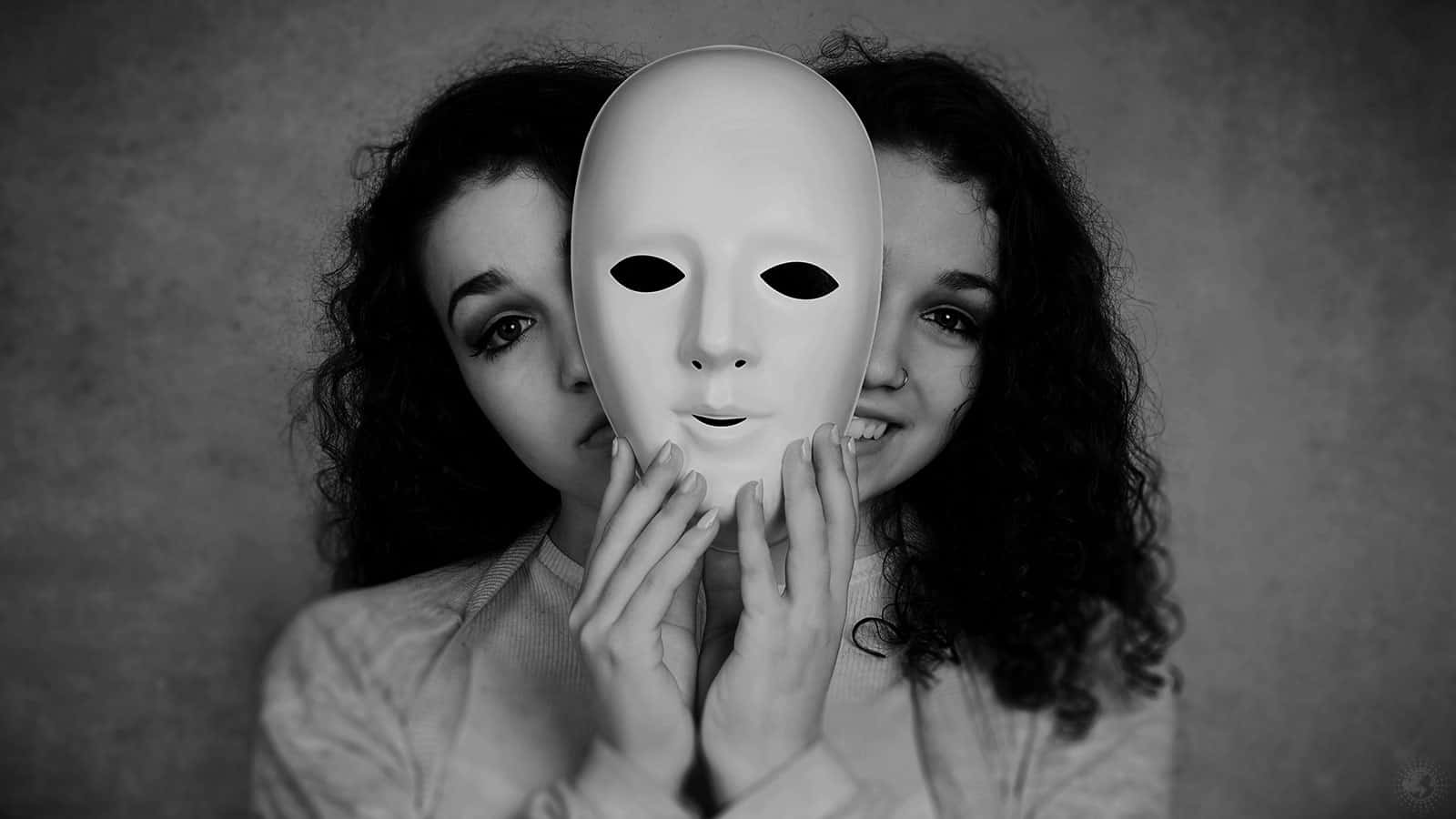If you live with bipolar I or II, then there are ways to stop a manic episode before it happens. By now, you recognize the emotional upswing that can cause chaos in your life. Even if your disorder is being treated properly, an occasional manic occurrence is possible.
If you study computer images of brain waves or heartbeats from an EKG, you realize that our vitals mimic daily life. There are ups and downs for everyone. The only time we will ever have a flatline physically or emotionally is when we pass away.
The degree of mania with bipolar depression may vary from person to person. Maybe yours were mild or were episodes that spun you entirely out of control. Just remembering these times can trigger depression and anxiety for you.
With advancements in psychiatric medicine and mental health, you are more likely to be less symptomatic than someone diagnosed just a decade ago. When you recognize the warning signs of a mania episode, it can be easier to confront it.
Whether you battle mania rarely or frequently, these episodes can be challenging. They can affect you and everyone in your life. Fortunately, there are helpful ways to deflect these occurrences at their roots.
Understanding a Manic Episode
Mania is much more than hyperactivity or blissful feelings. While the euphoric effect may be pleasant for a while, it will soon drain you physically, mentally, and emotionally. An extended mania episode can also strain personal relationships and wreak havoc on your finances.
On the pendulum of bipolar disorder, mania’s upswing can be just as traumatic as depression’s downswing. You are probably familiar with the warning signs that an episode of mania is eminent. It is common to experience a few or all these signs, though the intensity will vary.
Five Key Signs of a Manic Episode
Before you can prevent mania, you must first be able to identify the critical signs of an impending episode.
1. Your Mind Is in Overdrive
The most common red flag of a mania onset is thoughts racing through your mind. If you have a dual diagnosis of ADD, this stream of ideas may be reasonable for you. However, it’s intensified in bipolar depression.
When your mania rises, you may feel like your brain is perpetually blabbing to the point that you can’t concentrate or sleep. No matter how hard you try, your thoughts are going at full speed. You have so many ideas that you feel overwhelmed.
At work or home, your coworkers and family may find you distracted and unusually giddy. For a while, your creativity may increase, adding fuel to the euphoria and constant chatter in your mind. It frays your nerves and can impede your daily activities.
2. You Feel Euphoric and Invincible
Who doesn’t like to feel upbeat each day? For those who have bipolar disorder, it is a welcome break from the accompanying depression. When your happiness turns into a euphoria that begins to tax your body, it may be mania.
During these episodes, your emotions can go into full swing, and you might lose touch with reality. You may feel so good that you believe you are infallible and invincible. These delusions of grandeur can tempt you to take risks that are unusual or even dangerous for you.
Those around you might enjoy your bubbling enthusiasm at first but could become annoyed when you take it to the extreme, especially with delusions. Increased mania can make you arrogant, judgmental, and argumentative over the least things.
If left untreated, delusional mania can skew your sense of reality, and you may believe things about yourself and the world that are not so. It is not uncommon for people in this manic stage to change personalities and get into potentially dangerous situations.
3. Your Speech and Thought Processes Become Too Rapid
Have you ever heard those annoying disclaimers at the end of advertisements that are delivered so quickly you can’t understand them? A manic episode may increase your speech in almost the same way. You may converse so swiftly and change subjects so much that nobody can understand you.
An increase in speech speed is related to the racing mind symptom. As the mania revs up your brain, your mouth tries to compensate for it. Soon, your thoughts may be too fast for speech, and your conversation becomes a messy stream of consciousness.
4. You Notice a Long Bout of Insomnia
Those with bipolar depression diagnosis often battle hypersomnia, or sleeping too much, when they’re depressed. This symptom probably makes you feel miserable. On the flip side, your need for sleep may decrease to where you go for days without it.
Unless you have been diagnosed with a sleep disorder, any change in your sleeping pattern is worth noting. With your mind chattering and a false sense of euphoria, it’s understandable that you would put sleep on the end of your to-do list.
Do you notice that you are up all hours of the night working or letting your brain spin out of control? It may not affect you for a day or so, but your body will soon shut down. You are at risk if you’re driving or doing other activities.
5. You Carelessly Take Risks with Dire Consequences
Are you usually a level-headed person who avoids risky behaviors? If you have bipolar depression, a manic episode can change your attitude. Fleeting thoughts and delusions of grandeur compound in the brain and can create urges to do things that are out of character.
If you have an addictive nature, this symptom can be even more problematic. Mania can multiply your temptations exponentially and cause a relapse. Those who fight substance abuse or sexual promiscuity are prone to return to their old habits if their mania is not addressed.
Even if you’ve never abused drugs, alcohol, or sex, an episode of mania can overcome your brain, and you might seek these thrills. Other risky behaviors related to mania include excessive spending, gambling, and seeking adventures that could have negative consequences.
After these episodes, those with undiagnosed bipolar disorder may face financial difficulties, broken relationships, and legal issues. When the fog of mania lifts, the aftermath can catapult you into a bleak abyss of depression, and the cycle continues.
Stopping the Manic Episode
Do you recognize any of these debilitating signs and symptoms? Perhaps this isn’t your first time dealing with them. If you haven’t been diagnosed with a bipolar disorder, then you must talk to your doctor or mental health professional as soon as possible.
If this is a familiar pattern, you may minimize or eliminate a total mania flareup. Be sure that you are compliant with all medications, doctors’ orders, and therapy appointments. As you do some personal intervention, get your doctor or therapist involved immediately.
1. Call Your Accountability Person
An accountable person can be a spouse, partner, loved one, or a trusted friend. If you are also working through addiction, your go-to person can be your sponsor. You need someone who can recognize symptoms of mania when you can’t, and they will intervene for you.
Discuss a plan before you notice any signs. At the first onset, your person can make you aware so that you can stop it. It’s still recommended that you also see your medical health professional.
2. Be Prepared
You can’t wait until you have an emergency to plan or gather the necessary resources. Be proactive with your bipolar disorder and be prepared should a manic episode surface. Your accountability person can help you formulate a plan of action.
Keep your bank accounts secure and consider having joint accounts with your partner or spouse, in case you are prone to taking financial risks during an episode. Limit access to any substance abuse and have all your medical information handy in case of a crisis.
3. Stay on Your Care Plan
Although there are currently no cures for bipolar disorders, many patients’ symptoms are substantially minimalized with medications and therapy. If you have any concerns about side effects or how well your medication is working for you, discuss it with your mental health professional.
Your medicine cannot help you if you don’t take it as prescribed. While you may be tempted to discontinue a drug because you feel better, it’s a terrible mistake. If the medicine is doing its job, then you could be at risk if you stop taking it without your doctor’s approval.
Likewise, bipolar disorders are most successfully treated with the right combination of medication and therapy. Regular sessions with your therapist can be beneficial and help you recognize symptoms of mania before they overwhelm you. Keeping your scheduled appointments is a vital part of your care plan.
4. Reaching Out to A Trusted Professional
Bipolar disorders impact thousands of people in our country, and you may be one of them. The good news is that recognizing signs and symptoms of a manic episode is your first defense against them. If you even suspect that mania is creeping into your life, consult your mental health professional immediately.
Final Thoughts on Beating a Manic Episode Before It Starts
Your mental health professional can give you tips and tricks to help you get through your time of mania. Additionally, they can help you to seek hospitalization if necessary.





















